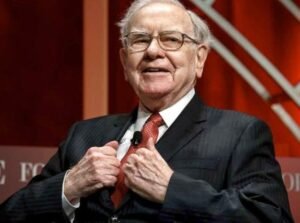$TSLA $TWTR $SPY
#ElonMusk #Twitter #SocialMedia #TechStocks #Finance #StockMarket #Investing #XCorp #MuskEffect #MarketTrends #Economy #Leadership
Elon Musk’s heightened political and social influence has turned him into a figure capable of swaying markets, public discourse, and even corporate valuations. His ability to shape narratives through his platform and decision-making has added a new layer of value to X (formerly Twitter), beyond its raw financial metrics or user statistics. Historically, social media companies have been evaluated based on advertising revenue, user engagement, and growth potential. However, Musk’s involvement with X has introduced a less quantifiable but highly valuable factor: his immense cultural and political reach. As he continues to engage directly with world leaders, policymakers, and the tech industry on subjects ranging from AI to free speech, the ripple effect on X’s perceived value cannot be ignored.
The intersection between financial valuation and influence is not new—companies led by high-profile executives often experience premium valuations in stock markets. Musk, as the face of Tesla, SpaceX, and now X, appears to wield a level of market-moving power that goes beyond traditional business leadership. His personal brand alone has the ability to drive stock prices and fuel speculative market moves. For example, Tesla’s ($TSLA) stock has frequently responded to Musk’s statements, whether about EV production or cryptocurrency endorsements. Similarly, X’s value isn’t just in its ad revenue but in its role as a digital public square where political discourse takes place, making it increasingly relevant in shaping both regulations and opinions. If Musk continues leveraging X for dialogue with policymakers and influential figures, the company’s long-term relevance might make it more attractive to investors, advertisers, and potential partners.
Despite this potential, challenges remain. Advertisers have shown hesitancy in fully committing to X, given the platform’s controversial changes under Musk’s leadership. Companies typically seek stability and brand safety when allocating ad budgets, and Musk’s unpredictable decision-making has raised concerns about whether X can sustain advertiser confidence. Furthermore, increased political scrutiny surrounding Musk—especially as he engages with world leaders and takes controversial stances—could introduce regulatory risks that may impact X’s growth trajectory. If the market begins perceiving X as a politically charged entity rather than a neutral platform, this could further influence its valuation, making it increasingly volatile from an investment standpoint.
Ultimately, Musk’s elevated status adds value to X not just in financial terms but in broader market influence. The platform’s position at the confluence of media, politics, and technology makes it a unique asset in today’s digital economy. If Musk successfully capitalizes on this through strategic partnerships, better monetization strategies, and maintaining strong user engagement, X could carve a niche for itself beyond a traditional social media company. However, its future valuation will depend on how well it balances these dynamics, including regulatory risks, advertiser confidence, and its evolving role in the global conversation. Investors and market watchers will keenly observe how Musk’s evolving status impacts X’s financial prospects in the months ahead.







Comments are closed.